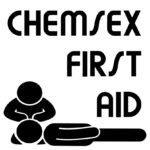Search Result
More chemsex support
Chemsex first aid
 WARNING!
WARNING!
Even with the best of intentions, you can do more harm than good if you are not trained or qualified, with possible legal implications if something goes wrong. Our best advice is to call 999 for an ambulance.
Harm reduction in the context of chemsex: training manual | Poulios, A. | 2022
Note: Section 4. pages 38-51 only | Complete PDF document here
Sex Party First Aid | MPower | Ireland | 2021
Chemsex first aid | PDF | David Stuart and Ignacio Labayen De Inza | Sep 2018
How to put someone in the recovery position
How to put someone into the recovery position | NHS | 1m 6s
The Recovery Position | St John Ambulance | 2m 31s
Helping someone who is unresponsive and not breathing | Red Cross | 1m 48
Don't Walk By | Global Drug Survey | 4m 33s
Social Action, Responsibility and Heroism Act 2015
In the common law of England and Wales, there is no criminal liability for failing to act in the event of another person being in danger; however, there are exceptions to this rule. In instances where there has been an assumption of responsibility by the bystander, a dangerous situation was created by them, or there is a contractual or statutory duty to act, criminal liability would be imposed on the bystander for their failure to take action. According to Wikipedia, the courts are reluctant to penalise people attempting rescue. The Act helps protect 'good Samaritans' when considering a claim of negligence or a breach of duty.
Social Action, Responsibility and Heroism Act 2015 | Wikipedia
Good Samaritan Law
Elsewhere in the world, there is also Good Samaritan law that offers legal protection to people who give reasonable assistance to those who are or whom they believe to be injured, ill, in peril, or otherwise incapacitated. The protection is intended to reduce bystanders' hesitation to assist for fear of being sued or prosecuted for unintentional injury or wrongful death.
Good Samaritan Law | Wikipedia
